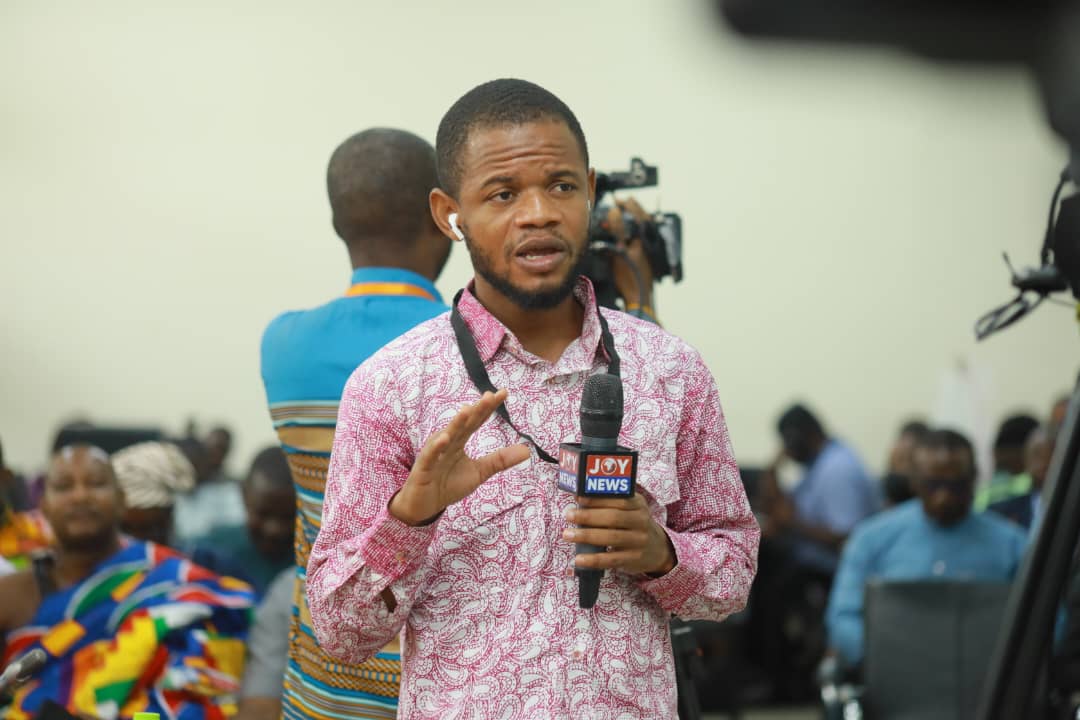JoyNews’ Kwaku Asante criticises use of ‘false news’ laws to intimidate journalists at Constitutional Review Committee – Nsemkeka
JoyNews’ Parliamentary and Legal Affairs correspondent, Kwaku Asante, has raised concerns about the misuse of false news laws to suppress press freedom in Ghana.
Addressing the Constitutional Review Committee on Tuesday, he cited recent incidents where journalists were arrested and charged under these laws for publications that should have been handled through civil, rather than criminal, processes.
He referenced the case of a journalist who was picked up for alleging that the wife of the former Vice President owned a particular parcel of land — a claim authorities described as false at the time and proceeded to arrest the journalist.
“In the last year or two, a journalist was picked up for saying the Vice President’s wife owned some land. They called it false publication likely to cause fear and panic. But my understanding of false news laws, as they exist in the criminal code, is that they were designed for situations like someone yelling ‘there’s a bomb’ in a crowded stadium, which leads to chaos, injuries, or even death. That’s what those laws were meant for.”
I appeared before the Constitutional Review Committee and shared my perspectives towards reviewing the Constitution. The focus was mainly on media but I shared my two cents on inclusion of private associations in the Constitution, exercise of Presidential powers etc. Watch: pic.twitter.com/QxXkRvVlHH
— Kwaku Asante (@kwakuasanteb) May 14, 2025
Kwaku Asante argued that such laws were never intended to criminalize inaccurate reporting, especially when those affected have access to civil remedies such as defamation suits.
“If a journalist wrongly reports that the Vice President or President owns land, and it turns out to be false, the remedy should be legal action in the civil courts, not police officers storming a newsroom to arrest someone,” he stated.
He acknowledged that not all legal principles can be captured within the Constitution, but stressed the importance of embedding certain fundamental values that can guide subsidiary legislation.
“The Constitution cannot contain every idea. But if we can establish core principles like freedom of expression, media independence, and protection from arbitrary arrest, then other laws can be built on that foundation.”
Kwaku Asante, a Senior Journalist with the Multimedia Group Limited, was among journalists who were invited to share their perspectives towards reviewing the 1992 Constitution of Ghana by the Professor H. Kwasi Prempeh-led Constitutional Review Committee.

